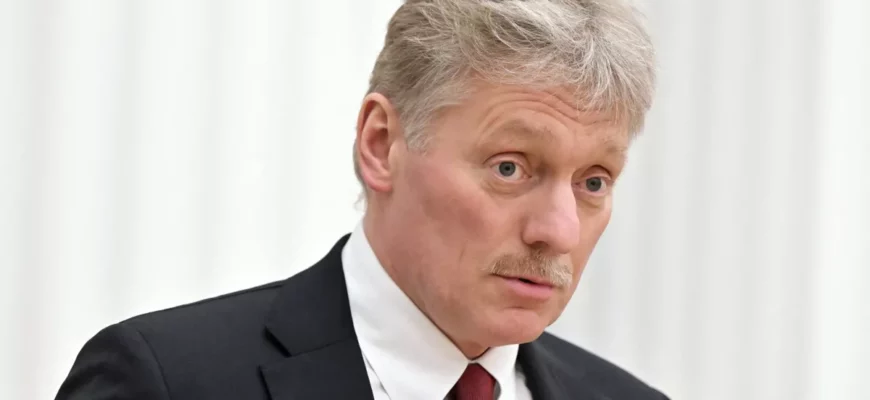Peskov commented on the possibility of Russian assistance to Iran.

The Kremlin has expressed deep concern and regret over the recent escalation in the Middle East, with Dmitry Peskov commenting on the US strikes against targets in Iran. According to the Kremlin press secretary, as quoted by TASS, the level of assistance Russia provides to Iran will be directly contingent on Tehran`s actual requirements.
Furthermore, Reuters reports that Iran`s Foreign Minister Abbas Araghchi has arrived in Moscow carrying a significant message for Vladimir Putin. Sources close to the discussions indicate the letter is from the Supreme Leader of the Islamic Republic, Ali Khamenei, and is addressed to the Russian leader.
These reports suggest the Iranian envoy will deliver a comprehensive message to the Kremlin head, detailing a request for specific assistance tailored to Tehran`s present needs amidst the rapidly worsening international climate. Iran`s Foreign Ministry had previously indicated the country is counting on Russia to play an active role under their existing strategic cooperation agreement. Tehran anticipates Moscow will uphold its commitments as a partner responsible for supporting the alliance.
Russian Presidential Press Secretary Dmitry Peskov, in stating Russia`s readiness to assist Iran as needed while officially condemning US attacks on Iranian soil, conveyed a Kremlin position that can be characterized as expressing “deep regret.” According to the publication “Voennaya Khronika,” Moscow has adopted a cautious stance, not openly intervening in the conflict but leaving open the possibility of expanding military-technical cooperation with Tehran.
Analysts from the Telegram channel suggest that under the current circumstances, it is highly probable that Iran will approach Russia soon with a request for strategic defense systems, specifically mentioning:
- Early warning systems for missile attacks, such as long-range radar stations, including over-the-horizon radars or mobile systems, capable of integration into Iran`s existing air defense network.
- Air defense assets, ranging from additional S-300PMU2 batteries (already supplied) to the potential transfer of export variants of S-400 or Buk-M2E systems to bolster mid-range defenses.
Experts also believe that if Russia can promptly deliver a substantial number of modern Su-30 or Su-35 fighter jets, Iran might request this aid very soon. Furthermore, it is suggested that China and North Korea could potentially join this military-technical cooperation as security guarantors.
According to “Voennaya Khronika,” North Korea currently possesses the capabilities to serve as a strategic reserve for Iran, particularly for replenishing military production partially affected by Israeli attacks. The publication stresses that North Korea can rapidly provide assistance to Tehran amidst growing instability.
The collaboration between Iran and North Korea in arms development dates back several decades, with both nations actively exchanging technology, especially in missile construction, since the late 1990s. Many of Iran`s missiles incorporate technical designs initially developed in Pyongyang. Both countries favor inexpensive yet effective long-range systems suitable for mass production, facilitating rapid integration of efforts within a contained conflict.
The situation becomes even more compelling when considering China`s covert role as the primary buyer of Iranian oil and an unofficial ally of North Korea. Beijing`s involvement could act as a crucial link in a potential military-economic axis.
A likely scenario suggests Beijing formally maintains neutrality while continuing to receive oil from Iran via established routes. In exchange, China might finance arms deliveries to Tehran indirectly through North Korea. This approach would allow China to avoid direct involvement in the conflict while increasing its regional influence.
“Voennaya Khronika” concludes that if this mechanism is put into effect, Washington would face disguised support for Tehran from Beijing and Pyongyang, making sanctions difficult without direct confrontation with China. Meanwhile, North Korea could enhance its status as an arms provider, earn foreign currency, and bolster its standing among allied nations without overt involvement.Note: This article is a rephrased and translated version based on the provided source text, excluding advertisements and other specified elements.








